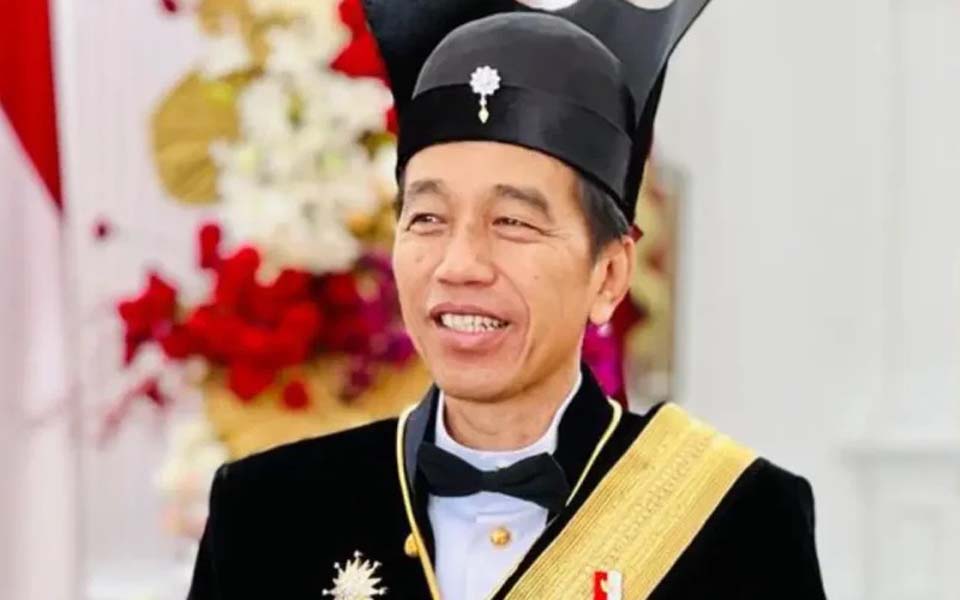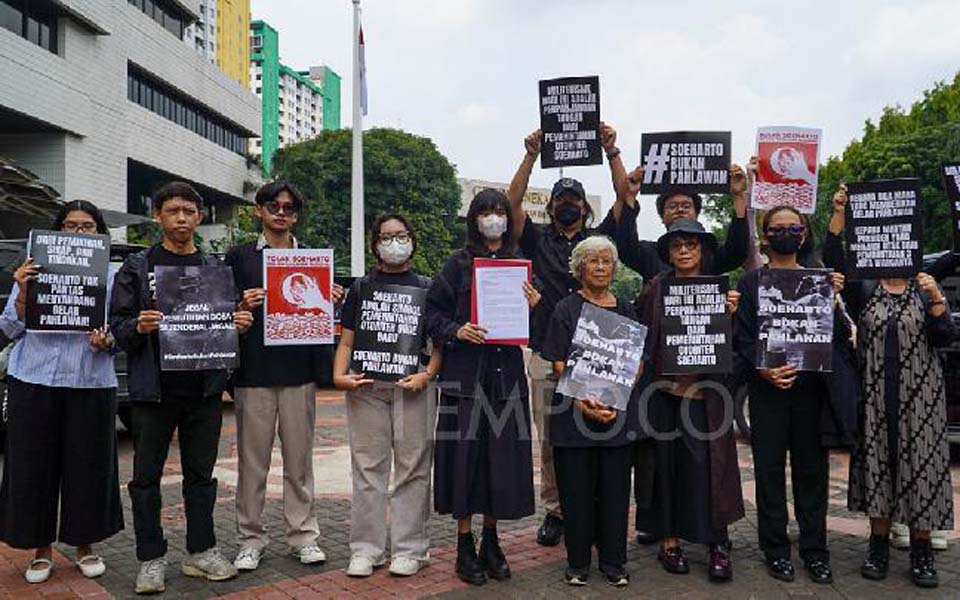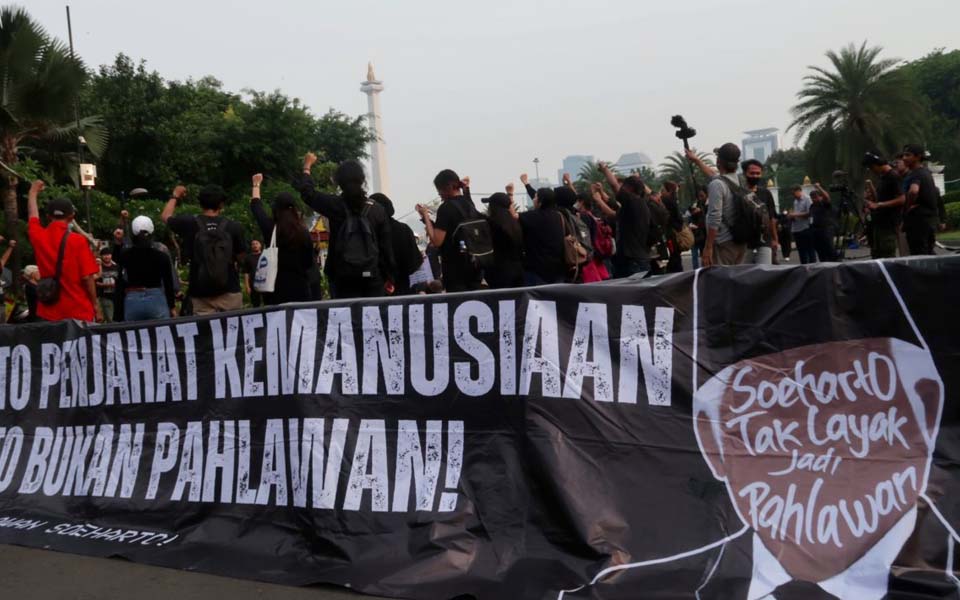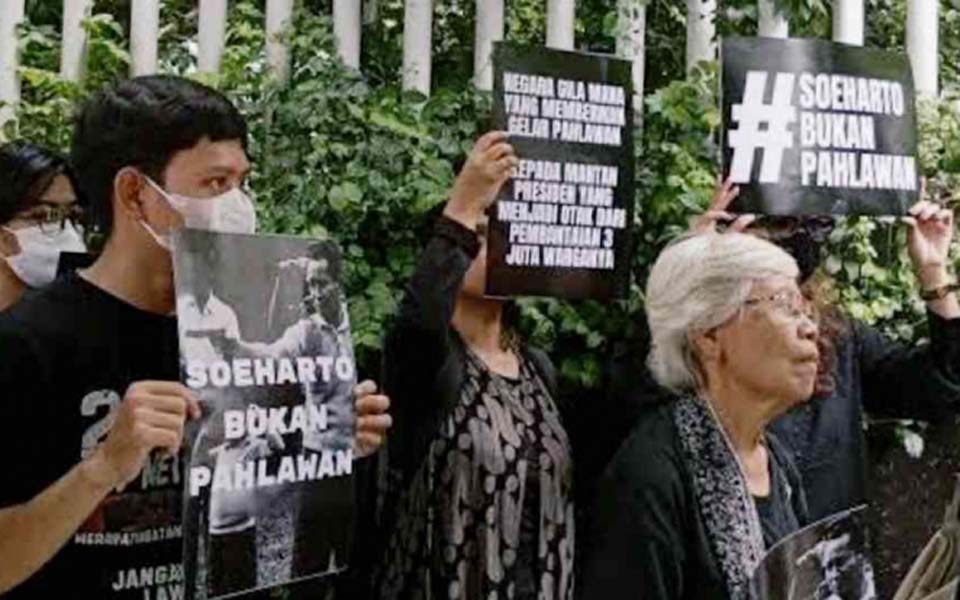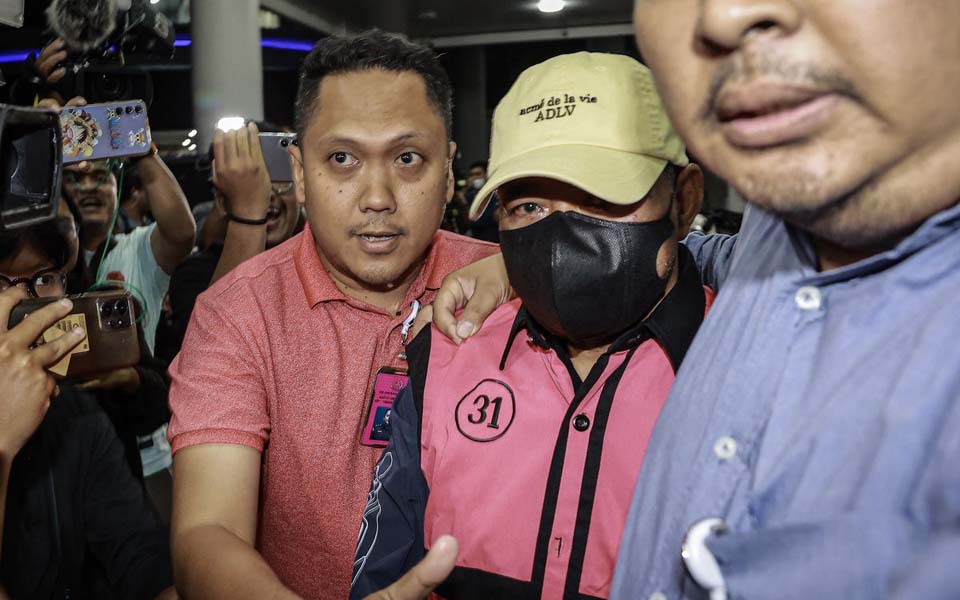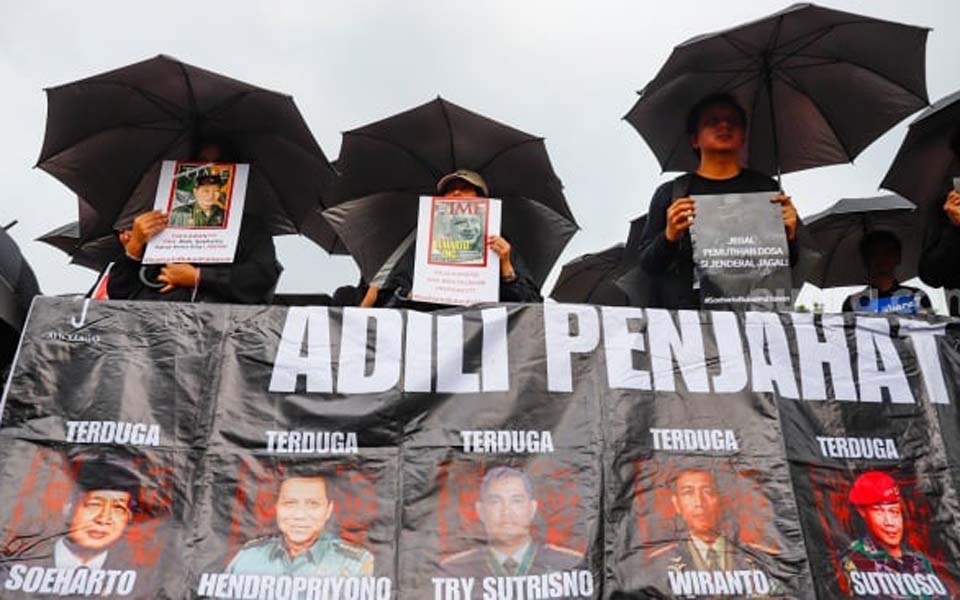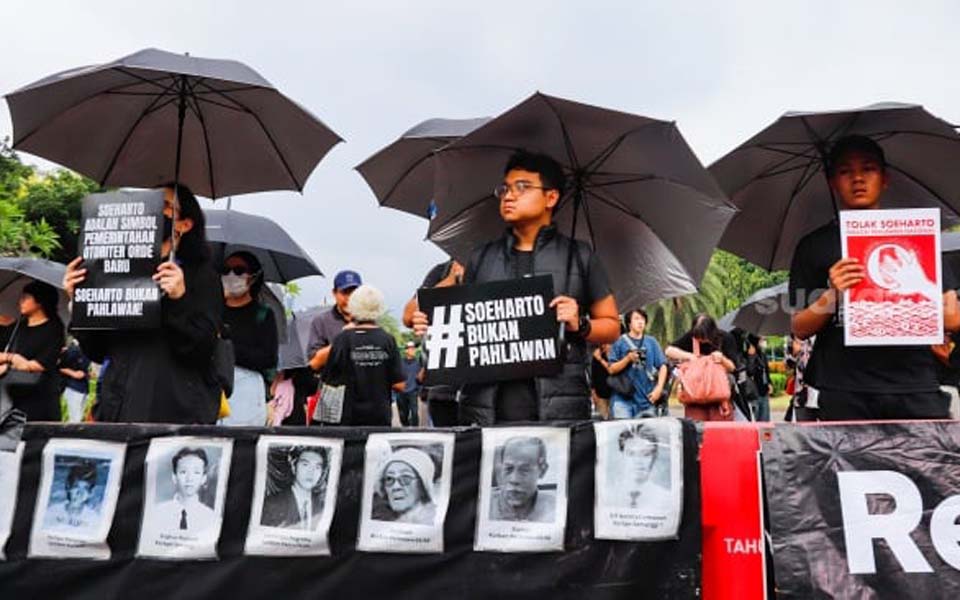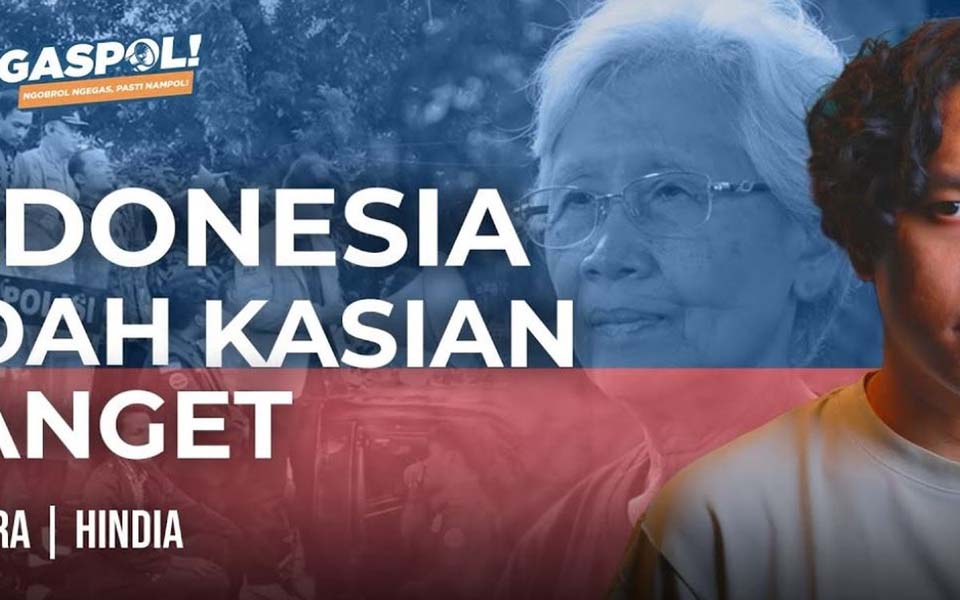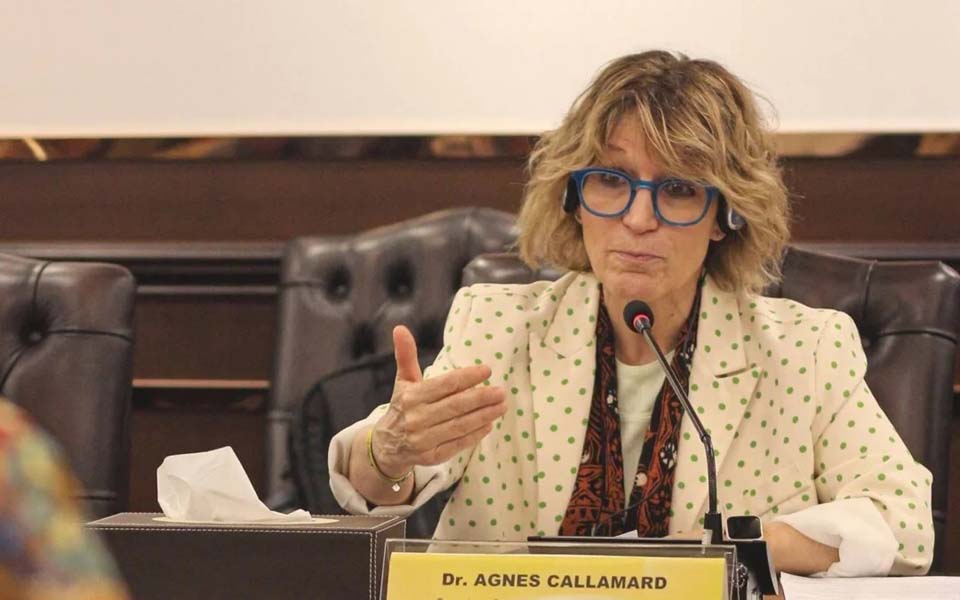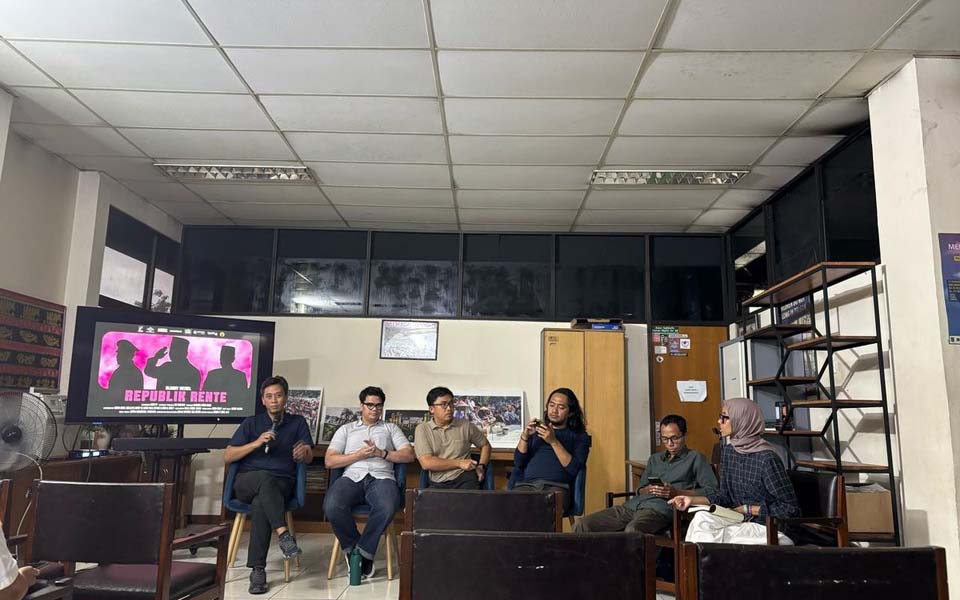At the close of 2024, a non-profit organization called the Organised Crime and Corruption Reporting Project (OCCRP) released a list of nominations of people who were considered to have contributed greatly to worsening organised crime and corruption. Indonesia's seventh president, Joko "Jokowi" Widodo, was included in the list of nominees.
Although in the end he ultimately lost to the winner of the 2024 Person of the Year award, Bashar al-Assad (the former president of Syria), the inclusion of Widodo as one of the nominees is a bad precedent for the state of democracy, the rule of law and human rights in Indonesia.
Nevertheless, the Indonesian Legal Aid Foundation (YLBHI) is of the view that the label of the most corrupt figure throughout 2024 released by OCCRP has a strong basis. The YLBHI believes that there are at least 10 factors that make Widodo worthy of being called a corruptor.
1. Systematically weakening the KPK
In 2014, Indonesia's Corruption Perception Index (IPK) reached 34 after experiencing a gradual upward trend from 17 in 2000. Now, the index is stagnating or even declining when compared to other emerging developing countries. On February 13, 2019, nine factions in the House of Representatives (DPR) approved the revision of the Corruption Eradication Commission (KPK) Law resulting in the anti-corruption agency no longer being an independent institution because it came under the authority of the president. In concert with these revisions, on September 12, 2019, the DPR's Commission III elected Firli Bahuri as the new KPK chairperson for the 2019-2023 period, receiving 56 votes. Because of the revisions, KPK employees were required to change their status to that of State Civil Servants (PNS). As a result, on May 25, 2021, 51 KPK employees were declared to have failed a civics knowledge test (TWK) and were dismissed.
2. Revisions to the Mineral and Coal Mining Law (2020)
Aside from the fact that the revision process did not involve meaningful public participation, in 2020 the Padang Legal Aid Foundation (LBH) noted that there were four crucial points in these revisions.
First, the centralisation of control over minerals and coal, which resulted in communities loosing access to fight for their rights and community control over mining. Second, the automatic extension of the work contracts and Work Activity and Coal Mining Agreements (PKP2B) which ignores the evaluation process and eliminates affected community participation in decision making.
Third, there was no change in space utilisation for mining areas, which will disrupt the carrying capacity and capacity of the environment that has been exceeded, which is feared will have an impact on natural disasters due to excessive exploitation.
Fourth, articles criminalising of people who hinder or interfere with mining business activities, which has the potential to be used as rubber (catch all) articles to silence the people's fight against mining that is depriving them of their living space.
We also note that after the regulation was revised there was an increase in investment targeting the natural resource sector. Nickel production increased gradually and the surplus coal target was in fact inversely proportional to the absorption of state revenue over the past three years (2022-2024).
3. The Omnibus Law and ignoring check and balances
The public still remembers that the draft Omnibus Law on Job Creation was born from the palace. Widodo at that time asked the DPR to pass the bill within 100 days. In the midst of widespread opposition by the ordinary people, the alliance of legislators and the judiciary closed their ears and eyes to the people's aspirations.
Widodo even made intimidating statements asking the State Intelligence Agency (BIN) and the National Police (Polri) to "approach" community groups who rejected the packet of all-encompassing policies and mobilised the police to carry out systematic repression against mass actions opposing the Omnibus Law in several cities.
The Omnibus Law was finally passed, but then cancelled by the Constitutional Court on the condition that it was necessary for it to be revised according to the principle of meaningful public participation. Widodo did not listen to the ruling, but instead issued a Government Regulation in Lieu of Law (Perppu) with the same substance without accommodating the people's aspirations.
4. Regime of nil meritocracy
It is a public secret that while Widodo was in office he appointed several individuals who supported him in presidential elections to special government positions. There were at least 13 Widodo volunteers in the 2019 elections who became commissioners of state-owned enterprises (BUMN). They were Rizal Mallarangeng, Lukman Edy, Zulnahar Usman, Arya Sinulingga, Arief Budimanta, Irma Suryani Chaniago, Dudy Purwagandhi, Fadjroel Rachman, Andi Gani Nena Wea, Ukin Ni'am Yusron, Eko Sulistyo, Dyah Kartika Rini and Kristia Budiyarto. The placement of people close to Widodo demonstrates a practice of bureaucratic reform with a scheme of meritocracy just being jargon.
5. Reviving the military's dwi-fungsi
ABRI (the Armed Forces, now called TNI) are a historical symbol of corrupt power. During his time in power, Widodo tried to revive this practice. The People's Tribunal (Mahkamah Rakyat) noted several points that can showed the revival of this practice.
First, through the enactment of Law Number 20/2023 on State Civil Servants. Under this law, the civilian position that can be filled by active military officers was broadened. Second, illegally appointing 29 active TNI officers outside of the stipulations in the TNI Law. These were spread from the central government to filling acting regional head positions. Third, handing over food estate project to the Ministry of Defence which in the end legitimised the military's involvement in business.
6. State-owned enterprises become volunteer-owned enterprises
BUMN Minister Erick Thohir reshuffled Echelon I BUMN company officials. He explained that the action was a directive from Widodo. In practice, the reshuffle was ridden with practices of corruption, collusion and nepotism (KKN) and violated the General Principles of Good Governance (AUPB) because many BUMN company officials held concurrent positions. These dual positions were legitimised by alternations to policies that initially prohibited it.
Several BUMN company officials were recorded as holding dual positions. Carlo B Tewu was appointed as Deputy for Legal Affairs and Legislation. Tewu was appointed when he still held the rank of police inspector general without having to resign first. Currently, Tewu is also listed as the commissioner of PT Bukit Asam Ltd., a privately run coal company. Thohir also appointed Bambang Sunarwibowo – an active Polri officer and principle secretary of BIN – as commissioner of PT Aneka Tambang Ltd. on June 11, 2020.
7. Intelligence for political interests
Widodo also gave positions to presidential election volunteers Diaz Hendropriyono and Gories Mere, who were appointed as Palace intelligence special staff members. The president is a person, not an institution whose leading members rise in tiers. The activation of palace intelligence during Widodo's era was utilised well as a tool to strengthen his political position. The public remembers that Widodo once said that he had all the innermost secrets of the political party's kitchens collected from this intelligence work. The impact was that not just one political party was ransacked by Widodo and his cronies. At the time Hendropriyono was also the commissioner of PT Telkomsel and a commissioner of PT M Cash Integrasi Ltd.
8. Repression and criminalisation
In the midst of the birth of undemocratic policies, and the politics of sharing out positions, the Widodo regime encircled the ordinary people's democratic space with relentless repression. The protests against the government's regulation on wages in 2015 was responded to with the arrest of 22 workers, one student and two legal aid workers from LBH Jakarta. In the same year, 49 people were criminalised after trying to expose the corruption case involving then National Police Chief Budi Gunawan. One of them was KPK chief Bambang Widjojanto. In 2019, the LBH-YLBHI noted that at least 6,128 civilians were victims of violations of freedom of expression in public.
In Papua and West Papua the movements opposing racism by police and military officers towards Papuan students in Surabaya in 2019 was responded to with the deployment of 6,500 paramilitary Mobile Police (Brimob) and military personnel. Some 1,013 people were arrested and 61 killed.
The following year, the movement against the Omnibus Law on Job Creation was responded to with systematic repression with at least 5,918 people arbitrarily arrested and 480 people criminalised.
Ahead of his abdication from the throne in 2023, Widodo's manoeuvres to enable his youngest son Kaesang Pangarep to run in the regional elections was responded to by the civil society movement with mass actions in 44 regions – 12 of which were responded to with repression. The YLBHI and its networks recorded that at least 333 demonstrators were victims of various forms of attacks by the police, plainclothes officers and the military. The forms of these attacks included doxing, asset seizure, persecution, being hunted down, arbitrary arrest, criminalisation, enforced disappearances for a short period and obstructing legal assistance.
9. National strategic projects seize people's living space
There were many corrupt steps taken by the Widodo regime to facilitate what we today commonly call National Strategic Projects (PSN). First, Widodo created the foundation for the policy: Presidential Regulation Number 15/2015 on Land Acquisition for the Public Interest, Government Regulation (PP) Number 3/2016 on the Acceleration of Implementation of National Strategic Projects and all its revisions, and Presidential Regulation (Perpres) Number 4/2016 on the Acceleration of Electricity Infrastructure Development.
These policies in many business practices are used as a stamp to smooth the land acquisition process. The Rempang Eco City project in the Riau Islands, the Wadas dam project in Central Java and the Komodo Island tourism project are examples of this. In fact, the 2024 Extraordinary People's Assembly noted that Widodo legitimised the deforestation of some 2 million hectares of forest for food security related PSN projects.
10. Nepotism of power
At the end of his term, Widodo tried everything by mobilising the police, ministers and volunteers, and using state facilities (social assistance) to secure victory for his eldest son Gibran Rakabuming Raka as vice presidential candidate in the 2024 presidential election. It didn't stop there; Widodo was also seen sponsoring his son-in-law Bobby Nasution and Kaesang Pangarep to run in the regional head elections by once again trying to revise the Regional Election Law. Nasution wanted to run as a gubernatorial candidate for North Sumatra, Ahmad Luthfi (Solo gang, Widodo's home town) wanted to become a gubernatorial candidate for Central Java, Sendi Ferdiansyah (Widodo's wife Iriana's personal secretary) wanted to become mayor of Bogor, and Khofifah Indar (from the Prabowo-Gibran campaign team) wanted to run as a gubernatorial candidate for East Java.
Efforts to back people close to Widodo like this were accompanied by the widespread proposal to accelerate the implementation of the 2024 regional election by revising the Regional Election Law. Through a presidential letter, Widodo requested that revisions to the Regional Election Law include bringing forward the implementation of the regional elections from its original schedule in November to September 2024. This would have meant that the elections took place a month before Widodo stepped down as president.
The YLBHI sees several indications of the types of corruption committed by Widodo, including: political bribery which involves the creation of laws that are adjusted to the interests of the person holding power, this can be seen from efforts to overhaul policies that prohibit dual positions in government; political kickbacks which are contract systems that benefit business and policy makers, this was clearly seen in the Omnibus Law on Job Creation; election fraud related to cheating during the general election, which was done by mobilising ministers and the police to be involved in the 2024 presidential election campaign; corrupt campaign practices where candidates use state facilities for the benefit of their political campaign, which was also seen in the procurement of social assistance and its distribution carried out ahead of the 2024 presidential election; discretionary corruption in making policies that prioritise personal interests with the power that they have, as seen when Widodo tried to remain in office for a third term and attempts bring forward the 2024 regional elections; illegal corruption, which is corruption carried out by manipulating the law and legal language that has the potential to be used by law enforcement officials, which we often see it in acts of criminalisation and repression against people who use their right to speak out and are considered to "be against the authorities", "are damaging public facilities" or "violating public order"; ideological corruption which is a combination of discretionary corruption and illegal corruption; and mercenary corruption or abusing power for personal gain.
Jakarta, January 3, 2025
With respect
YLBHI management
[Translated by James Balowski. The original title of the article was "10 Faktor Jokowi Layak Disebut Pemimpin Korup dan Pelanggar Hukum dan HAM terorganisir".]





